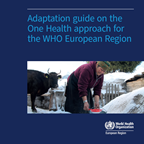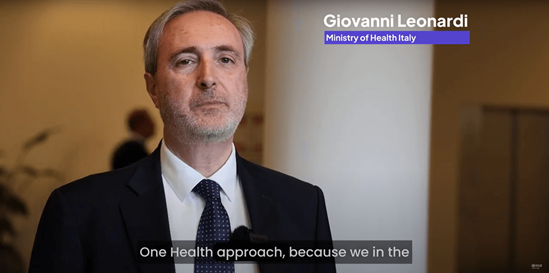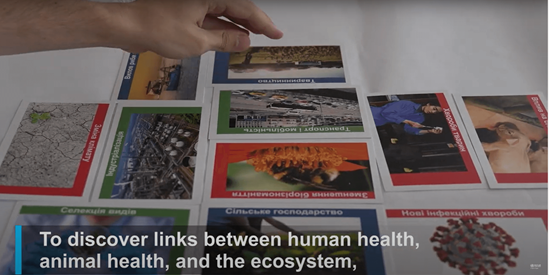
One Health
It recognizes that the health of humans, domestic and wild animals, plants, and the wider environment (including ecosystems) are closely linked and interdependent.
The approach mobilizes multiple sectors, disciplines and communities at varying levels of society to work together to foster well - being and tackle threats to health and ecosystems. It addresses the collective need for clean water, energy and air, and safe and nutritious food, promoting action on climate change and contributing to sustainable development.
The COVID-19 pandemic has highlighted the interconnectedness of human, animal and ecosystem health — emphasizing the need for a One Health approach that addresses the interconnected risks and vulnerabilities of human, animal and ecosystem health.
One Health applies to a range of issues, including:
- antimicrobial resistance (AMR), which happens when germs, such as bacteria and parasites, develop the ability to defeat the drugs designed to kill them and continue growing and spreading;
- zoonotic diseases, which are infectious diseases caused by pathogens that spread between animals and humans, such as anthrax, brucellosis, avian influenza and rabies;
- vector-borne diseases, which affect people who get bitten by a vector (e.g. mosquitoes, ticks, lice and fleas), such as dengue fever, West Nile virus, Lyme disease and malaria;
- food safety and foodborne diseases, caused by the contamination of food at any stage of the food production, delivery and consumption chain, such as norovirus, salmonella, campylobacter and listeria;
- the environment, which is affected by anthropogenic global stressors, including land use change, biodiversity loss, climate change and the environmental pollution of soil, water and air, which in turn increase risks to human health; and
- the functioning of health systems in the prevention and management of infectious zoonotic diseases, production-related diseases, AMR, food safety, and other hazards.
All these areas cover complex issues that require close collaboration.
One Health Quadripartite
The Quadripartite Organizations – the Food and Agriculture Organization of the United Nations (FAO), United Nations Environment Programme (UNEP), World Organisation for Animal Health (WOAH, founded as OIE), and World Health Organization (WHO) – cooperate, as the One Health Quadripartite, to optimize the health of humans, animals, plants and the environment.
Publications
All →Annual business meeting and technical conference 2022: local-level policy recommendations: operationalizing...
We, the mayors and senior political representatives of cities, gathered on 22–24 November 2022, confirm our commitment to the values and principles...
Supporting mainstreaming and elevating health and well-being in the United Nations Sustainable Development...
This guidance note is a tool that can be used by UN agencies and development partners that have a role and an interest in health, development and humanitarian...










